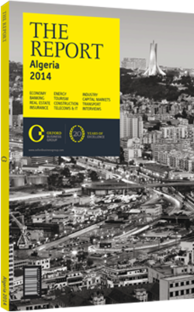OGB talks to Abdelhak Lamiri, President, Groupe INSIM

Interview: Abdelhak Lamiri
Has “brain drain” affected the Algerian economy?
ABDELHAK LAMIRI: Brain drain has always existed in Algeria, but at the beginning we were able to deal with it. We used to lose around 10,000 of our best workers every year. However, this became a national problem during the 1990s due to the instability caused by terrorism and the civil war, when we started to lose more than 50,000 workers a year. As we know, the brain drain concerns the best skilled workers, so this massively hurt our economy. In fact, we still suffer from this legacy: the lack of skilled human resources is the first challenge that companies have to face when investing in Algeria. We need to create a project as a country to make Algeria appealing. These people should be proud to contribute to something where they can innovate, improve management and processes, and be self-fulfilling. Algeria as it currently stands lacks a true master plan beyond the construction of new infrastructure.
How is the licence-master-doctorate (LMD) model adapted to the Algerian context?
LAMIRI: This reform has turned out to be a mere reorganisation in the duration of studies. However, the philosophy of the LMD model was more a question of how to learn, increase teamwork, create more internships in companies adapted to students needs, and establish a new modern pedagogical approach. In Algeria we have just applied the modification in the duration of studies and we have forgotten the rest of the LMD model philosophy. Furthermore, we are still producing graduates according to the available placements in the different degrees and not according to market needs. We have more social sciences graduates but not in engineering, for example. Currently, only 10% of the university students are choosing technological studies.
What will be the language formula for teaching?
LAMIRI: There are some international models that have shown real success, such as in Malaysia, which has some of the best primary education systems in the world. They used to teach everything in Malay but then they tried with English, which showed moderate results. The latest reforms required that everything related to identity – history, geography, their language and religion – should be taught in Malay, while all the subjects related to technology – mathematics, chemistry, management – are taught in English. This is the best possible language formula as the country is keeping its identity while learning scientific content in an international language. Here in Algeria, we can adapt the model to teach in Arabic, French and English. Once the country is totally developed, then the educational system can integrate all the content in Arabic or other local languages. But for the moment, the best existing solution is copying the multi-lingual Malaysian system.
What education reforms can be put in place to reinforce and support the system?
LAMIRI: Developed countries an institution that is attached to the president or the prime minister, working with the different civil organisations to create a vision for the country. This institution tries to put all the problems together – educational, financial and industrial – and find integrated solutions.
In the case of emerging countries, such as South Korea, China or Malaysia, they have the political power – from the top down – that fixes the general economic goals. But they also have the “brain-institution”. In Korea, for example, there is the Korean Institute of Development. In these institutions the most intelligent 200 or 300 citizens in all areas interact with the rest of society – people from businesses, trade unions, civil organisations and NGOs – to design the application of economic goals decided by the political institutions.
Finally, we have countries like Algeria or Belarus. We have failed in our development plans because our model consists of having 20 ministries, each with its own mini-plan, and when you put all of them together you start finding contradictions. To reverse this situation, we need to start with a general educational reform.
You have reached the limit of premium articles you can view for free.
Choose from the options below to purchase print or digital editions of our Reports. You can also purchase a website subscription giving you unlimited access to all of our Reports online for 12 months.
If you have already purchased this Report or have a website subscription, please login to continue.

